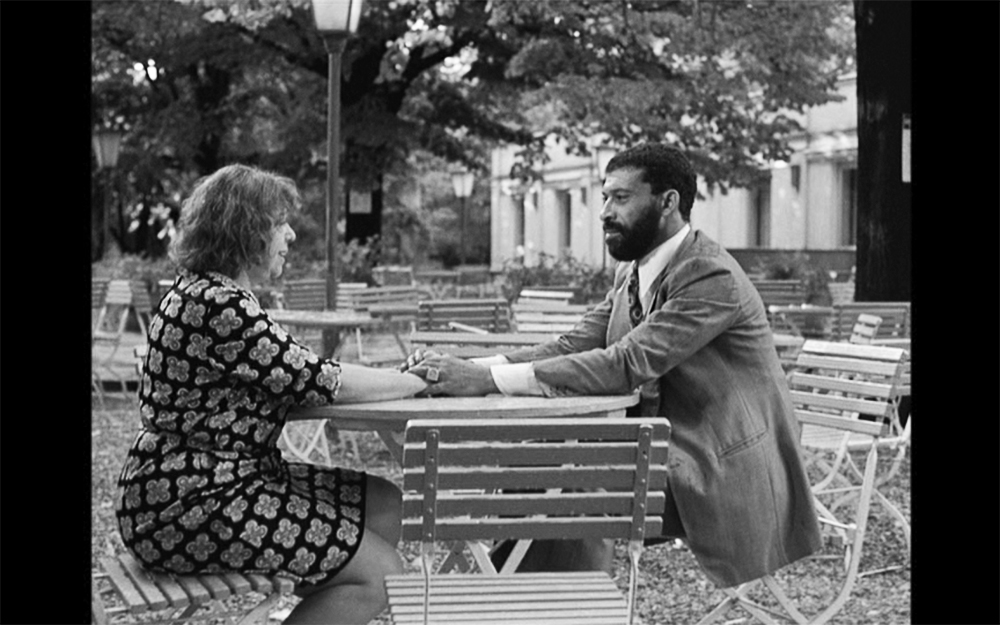Bernice Afriyie | Arts Editor
Featured image: Fassbinder remains an important figure in the New German Cinema movement with his controversial and sexually charged films. | Courtesy of Tango Films
The truth is, scandal sells. It’s thrilling and captivating to see relationships and situations that are not socially acceptable acted out on screen. Rainer Werner Fassbinder’s 1974 film Ali: Fear Eats the Soul is premised on the unlikely romantic relationship that develops between a widowed maid named Emmi, played by Brigitte Mira, and a Moroccan migrant worker named Ali, played by El Hedi ben Salem, in post-WWII Germany.
What draws viewers in is the unforeseen relationship that develops between main characters Ali and Emmi. The age, racial and linguistic differences between the two fuel the plot as the unseemly couple becomes fast friends, then lovers.
Ali: Fear Eats the Soul opens to a fading screen with Arabic music playing in the background as Emmi walks into a bar. On a dare, Ali asks the older woman sitting alone if she would like to dance. The two become fond of each other’s company and Ali offers to walk Emmi home as the night matures. The pair has a couple of drinks and Ali spends the night with little protest at Emmi’s insistence. The camera slowly fades out as Ali enters Emmi’s room and fades into the next day with Ali and Emmi in bed together, implying that the two did more than just sleep.
At first, Fassbinder’s choice not to give viewers access to Ali and Emmi’s intimate bed scenes may be chalked to pervading film conventions of the time and taboos towards showing nudity and sex on screen. Later scenes in the film, where Ali is taking a shower and is fully exposed to the camera, or when he has sex with a bartender and they are both nude, privy the audience and dispels any theory. There’s no buildup to seeing his penis or fancy shots that emphasize his nudity, which in itself contradicts the hypersexuality that is associated with Moroccan workers.
Emmi’s portrayal says a lot about nudity taboos as well. Throughout the film, the most physical intimacy that the couple show on camera is a hug. Her age excludes her from the realm of desirability. The content of Fassbinder’s film says that it’s okay for mature women to have romantic and sexual relationships, but then the camera refuses to reveal the mature female body in any sexual capacity.
An iconic film maker, actor and screenwriter in his time, Fassbinder’s films changed postwar German films and attitudes. Ali: Fear Eats the Soul and many other films, plays and TV productions by Fassbinder were critically acclaimed and thought to be provocative when they first debuted.
In honour of his work and contribution to cinema, the TIFF Bell Lightbox launched Imitations of Life: the Films of Rainer Werner Fassbinder. TIFF Bell Lightbox will be screening Fassbinder’s favourite films as a part of All The Heaven Allows: Fassbinder’s Favourites until January 5.



I really appatciree free, succinct, reliable data like this.